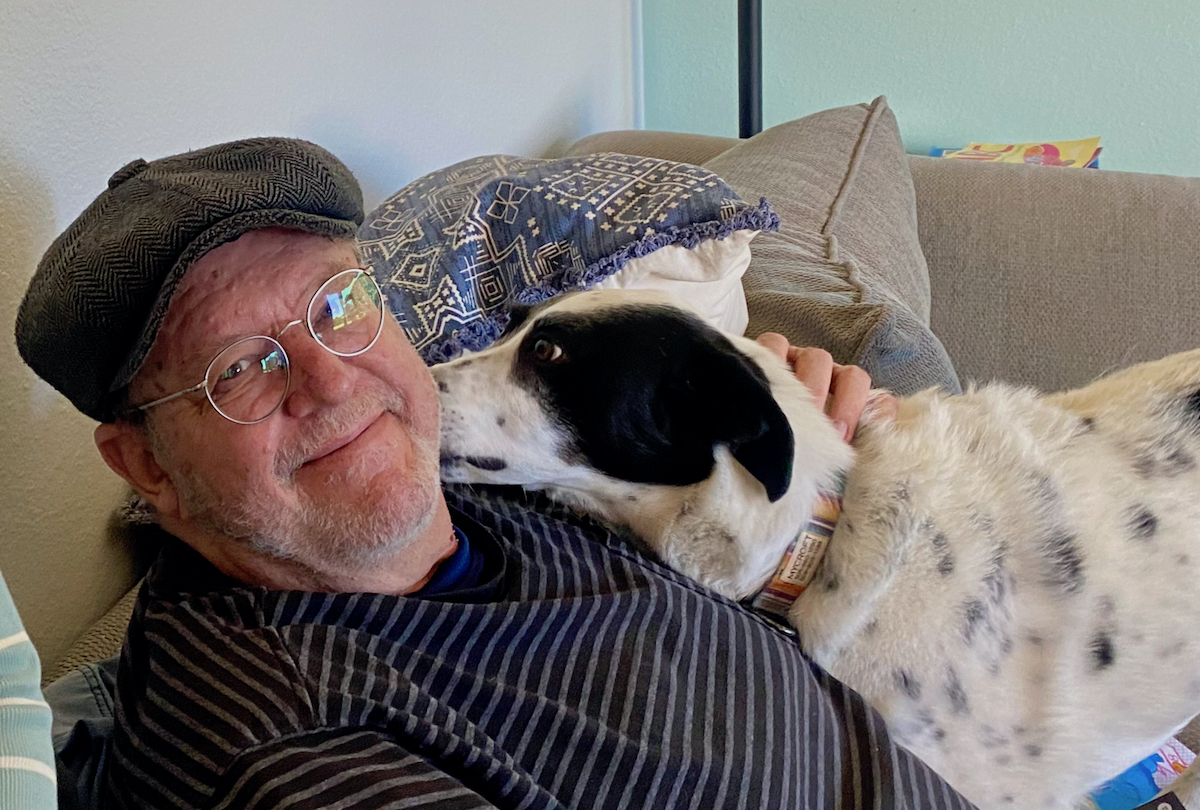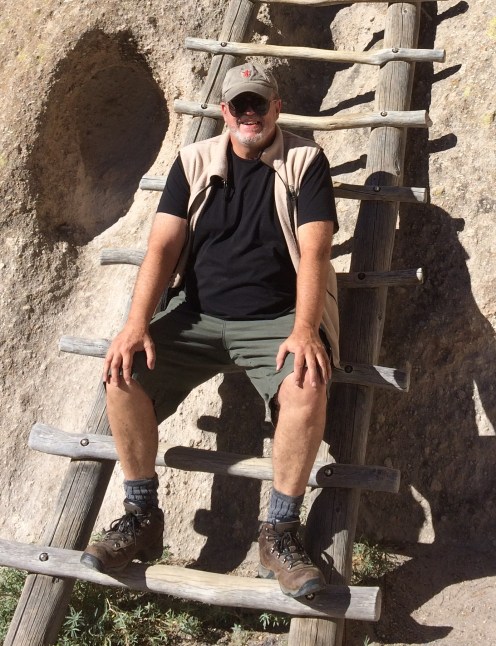
Steve Carlson had Sunday dinner with friends on his last night, and the conversation took a turn toward deeper themes as he explained how he met his wife, Claudia, who grew up down the street from him, and later married him at 20 and lived with him for 51 years, raising two deeply loved children, Ian and Theana. “Fate shaped my whole life,” he said. “How?” the friends asked. “The way I came to Santa Barbara, for instance,” he said. He applied to UC Santa Cruz. It was the cool school then, with people he might want to meet, up near Big Sur in the hippie late 1960s. No grades. But despite his own great high school academic record, Steven was turned down for Santa Cruz but allowed into UCSB.
Initially disappointed, he came here and lived through Isla Vista’s Strategic Hamlet Golden Years. He devoured English literature, particularly the poetry of Edmund Spenser and everything written by William Shakespeare. (He later worked at the university his whole employed life.) Then, Steve continued, sometime in his first college quarter, he got a letter from the UC system. There had been a clerical error and he was admitted to UC Santa Cruz, and he could transfer there when he wished. And why didn’t you go? “Simple,” he said. “Because I was living in Isla Vista and I had a lot of friends, and I loved it.”
On his way home from that dinner, Steve was killed by a drunk driver on Carrillo Hill.
It isn’t irony and it’s not really the pathos of this story you need register — though both are there. Primarily, it’s the Steve Carlson–ness of the pronouncement on the nature of fate delivered at a humble shared meal of New Mexico chili and salad. Few people thought so deeply, acutely, and often humorously about the nature of the world. He was all about the examined life and then some.
Tall, sometimes severe-looking to strangers — at UCSB, his job entailed delivering a lot of good and bad employment news, cementing his tough-guy reputation — Steve was in truth a doting parent and a steadfast friend. The seriousness of his academic life began in grammar school, followed by his first semester of high school in a seminary in the San Fernando Valley, and lasted all his life. At his all-boys Catholic high school, Servite, the role he cherished was playground informant on what the Beatles, Stones, and other psychedelic bands were up to, according to all he read. At UCSB, besides literature, linguistics, and history, Steve continued his exploration of a possible religious life by studying world religions — the Eastern brand being ascendant then — and wandered into Raghavan Iyer’s famous classes and later into the United Lodge of Theosophists, where he met a host of the people who would play major roles in his life: environmentalist Paul Relis, entrepreneur Steve Guy, City College philosophy prof Phil Greene, and the young son of the Iyer family, Pico.

Pico never forgets how his father introduced him to his star student Steve on the very evening Pico turned 18; it would become one of the best and most long-lasting presents he ever received. Not just because Steve bore a Phi Beta Kappa key and was thinking of extending his literary studies at Oxford, but more because he would become one of the funniest, most wide-ranging, and often unexpected friends anyone could dream of.
In the years that followed, they’d find themselves playing ping-pong in Oxford and visiting the little hut outside Kyoto where the haiku poet Bashō once lived. They’d drive down to L.A. to see the latest Timothy Leary documentary and wander around Manhattan discussing Joe Montana and Magic Johnson. Steve would become the one person the young Iyer could turn to whenever he wanted intelligence on Bach, or an explanation of the Higgs boson particle, or illumination on the ideas of Jung or the trenches of World War I.
There was always a sense that Steve had inherited a droll and delicious sense of irony from his English mother, to complement the idealism he’d absorbed at the heart of the ’60s. He could be counted on for wisdom about the latest satire — he was near-definitive on The Simpsons — and yet some visionary light belonging to the Far West was always gleaming in back of that. And at the heart of everything, as the smell of pungent Chinese herbs emanated from the kitchen where he seemed forever to be cooking dinner, was always his family.
Steve and D.J. Palladino had a deeply SoCal friendship, begun in Old English classes in the early 1980s, and stretched out over innumerable movies; slow beach walks; a couple of actual hikes, including one startling excursion on a trail in Haines, Alaska; exquisite chow-downs, both home-cooked and served in restaurants; long arguments about obscure points of Catholic doctrine (Palladino usually won); and their annual Christmas shopping expedition to Los Angeles.
It was also always clear to D.J. that the most important part of Steve’s life was his wife; children; and grandchildren, Colin, Cameron, and Bryar. This extended to his brother, Rick; sister-in-law, Lisa; and their children, Emily, Sebastian, and Stuart. Theana’s husband, Matt Earls; and niece Emily’s spouse, Kyle Carter; with their son, Evan, were no less his prides and joys. Steve would light up — become a boy again — the minute he began talking about his grandsons’ latest triumph on the playing field.
He had a book club that met religiously for 15 years. Admittedly, it was a Karl Jung–inspired reading group, so no best-selling novels were introduced. He read Philip Kerr mysteries lately.
And he read voraciously but he studied people all the time too. He had an immense curiosity. If you saw him at a party, he would come over and coax you into conversations that were flatteringly aimed at you. If it was a conversational gambit, it wasn’t faked. People sensed his heartfelt concern.
Most of us are nowhere near that attentive. But most of us don’t spend a lot of time tracking Gnostic thought through our lives to the point of understanding the difference between fate, destiny, and an accident. If he were here still, and we wanted to know what those differences might be, we could ask him, and he would dive right into an explanation somehow thorough and opinionated without being pedantic. Funny as well. We would do it in person or on one of those long phone calls that he loved. His many old friends and his family would love that too, or maybe love just standing near him at a party taking on any topic high or low, or maybe just watch him listening and laughing. But it breaks our hearts now that we can’t.
Steve Carlson is also survived by his mother, Eileen Carlson; and his sisters, Theresa Solorzano and Mary Klehr. There will be a memorial in January with date and place to be announced.

You must be logged in to post a comment.